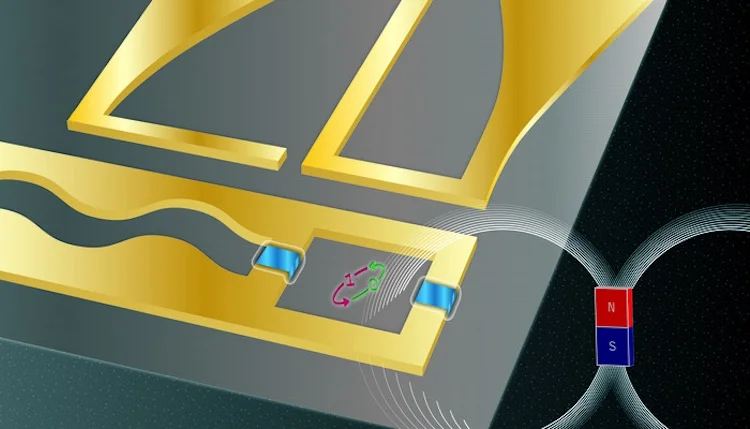- Researchers develop a new method to measure magnetic fields using quantum system and machine learning techniques.
- They reach a sensitivity that is 6 times higher than what can be achieved with conventional techniques.
There are certain limits to how precisely one can measure things. Take an X-ray image for example, it’s quite blurry and requires an expert physician to properly interpret it. Although higher intensity and longer exposure times could improve the contrast between multiple tissues, such large amount of radiation is not safe for humans.
You might be aware of the standard quantum limit, which says that accuracy of measurement is inversely proportional to the square root of given resources. The more you apply resources — power of radiation, time, number of images — the more accurate your measurement gets. So, higher precision means using extensive resources.
Now, an international team of physicists from MIPT, Aalto University, Landau Institute, and ETH Zurich Department of Physics, has come up with a better method to measure magnetic fields using quantum system and machine learning techniques.
They demonstrated a magnetometer with preciseness beyond the standard quantum limit. Let’s find out how did they develop it.
Using Qubit To Measure Magnetic Fields With High Sensitivity
Researchers have enhanced the preciseness of magnetic field measurements, by harnessing the coherence of a qubit, a superconducting artificial atom. It’s a very small device made of overlapping aluminum strips on a silicon chip – the same technique is used to manufacture mobile and computer processors.
 A qubit realized from aluminum strips on a silicon chip | Image credit: Babi Brasileiro / Aalto University
A qubit realized from aluminum strips on a silicon chip | Image credit: Babi Brasileiro / Aalto University
When the device is exposed to very low temperatures, the current flows through it with almost zero resistance, and the device starts showing properties of quantum mechanics similar to those of actual atoms. In fact, its intrinsic magnetic moment is about 100,000 times greater than those of real atoms/ions.
The state of the qubit changes when it’s irradiated with a microwave pulse. This change relies on the external magnetic field applied. Thus, to know the magnetic field, all you have to do is measure the atom.
In a qubit-based magnetic field detector, the coherence between 2 states (coherent superpositions of quantum states) oscillates at the frequency of the magnetic field that is penetrating the device. The higher the rate of wave-function phase-change can be measured, the higher the preciseness.
Reference: npj Quantum Information | doi:10.1038/s41534-018-0078-y | ETH Zurich
However, this won’t give you accuracies beyond the standard quantum limit. You have to apply another trick, i.e. pattern recognition using machine learning.
The researchers applied an adaptive approach. They performed a measurement and fed the result to machine learning algorithms. Then, they let AI decide how to alter a control parameter in the next step to get to the quickest estimation of the magnetic field.
This enabled them to reach a sensitivity that is approximately 6 times higher than what can be achieved with conventional techniques.
Conclusion
This combination of utilizing quantum hardware and supervised machine learning algorithms in the context of quantum sensing promises single- or several-qubit magnetometers that can provide accuracies beyond the limits of current magnetic field detectors.
Read: The First Simulation of Atomic Nucleus On a Quantum Computer
Magnetic field detection is crucial in a wide range of fields, from imaging brain activities to geological processing. It’s a small step towards using quantum-enhanced methods for sensor technology.


